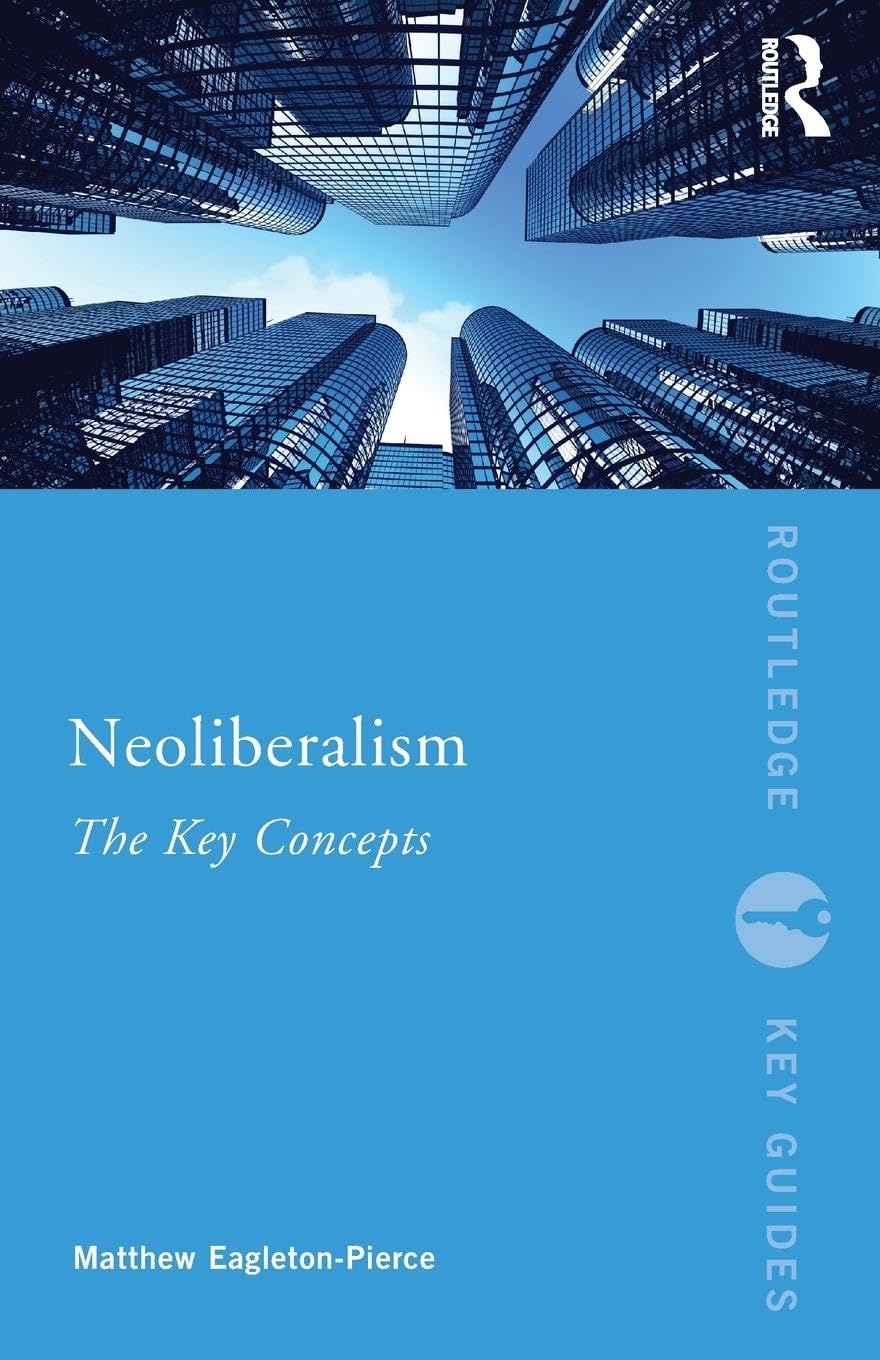Neoliberalism: The Key Concepts (Routledge Key Guides)
Neoliberalism: The Key Concepts (Routledge Key Guides) is backordered and will ship as soon as it is back in stock.
Couldn't load pickup availability
Genuine Products Guarantee
Genuine Products Guarantee
We guarantee 100% genuine products, and if proven otherwise, we will compensate you with 10 times the product's cost.
Delivery and Shipping
Delivery and Shipping
Products are generally ready for dispatch within 1 day and typically reach you in 3 to 5 days.
Book Details
-
Author: Matthew Eagleton-Pierce
-
Brand: Routledge
-
Edition: 1st Edition
-
Binding: Paperback
-
Number of Pages: 276
-
Release Date: 19-05-2016
-
ISBN: 9780415837545
-
Languages: English
-
Dimensions: 8.4 x 5.4 x 0.6 inches
About The Book
In Neoliberalism: The Key Concepts, Matthew Eagleton-Pierce offers a comprehensive and accessible guide to the language and key terms that have defined neoliberal thought over the past four decades. This critical resource examines how the vocabulary of neoliberalism constructs and expresses a particular worldview that affects not only economics and politics but also everyday life. While some see these concepts as empowering and transformative, others are deeply concerned by their implications and consequences.
The book dissects essential terms such as capitalism, choice, competition, entrepreneurship, finance, flexibility, freedom, governance, market reform, stakeholder, and state. These terms are central to understanding neoliberal policies and their far-reaching impact across the globe. Despite the popularity of neoliberalism, the meanings and histories behind these terms are often contested, and this work clarifies these complex issues.
Structured with an introductory essay, extensive cross-referencing, and a detailed bibliography, Neoliberalism: The Key Concepts serves as an indispensable resource for anyone looking to engage with the study of neoliberalism in all its forms and disguises. This interdisciplinary book is perfect for students, researchers, and those interested in the broader implications of neoliberalism in contemporary society.





